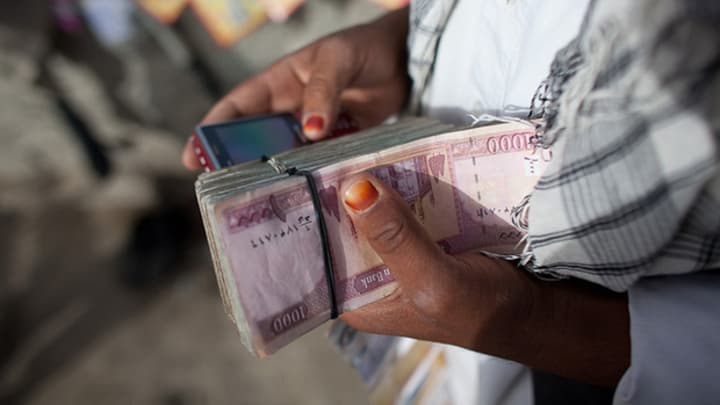
From finance offices at NGO headquarters to program staff meetings by development organizations in the field, there is new talk this fall about how to best comply with the U.S. Agency for International Development’s directive on electronic payments.
In August 2014, USAID issued a long-anticipated Procurement Executive Bulletin requiring its contracting officers and agreement officers to make e-payments the default payment mechanism for implementing partners. The bulletin disallows the use of cash and requires that all new procurements require organizations receiving funds from USAID only use e-payments. This applies to payments throughout an organization’s project budget, unless an exception is granted.
The disallowance of cash payments will not be an easy transition for everyone given the global reach of USAID’s programs to over 100 countries and with projected fiscal 2015 resources of almost $20 billion and a $9.7 billion budget request for its core USAID work. To assist in this transition and the broader shift toward digital payments, NetHope recently released an e-Payments Toolkit in collaboration with USAID’s Global Development Lab. The toolkit is designed to help development organizations and USAID implementing partners evaluate and implement market options for e-payments, from mobile money and pre-paid debit cards to wire transfers.
USAID’s move is timely given the expansion of digital networks that are creating an “on-grid” capability to use e-payments in areas previously untouched by financial services. E-payments systems now provide new options for delivering aid in post-disaster and conflict zones where remote payments are needed. While this technology shift is well underway, each market is unique and even within the same country, multiple markets may exist in different regions. For implementing partners, this will require a thoughtful review of the market conditions as well as careful assessments and evaluations in structuring programs to use e-payments for all program expenses. Accurate budgeting of those costs as program expenses will also be key as the costs of e-payments are now allowable program expenses under the new rule requiring their use.
USAID has made digital development and access to digital financial services a cornerstone of its work and views its implementing partners as central partners in the effort to build critical market systems to underpin inclusive economic growth and transparent service delivery. Compliance with the new rule is likely to be watched closely by the agency. Given the importance USAID leadership places on this effort, organizations should begin to position their program and proposal teams for the evaluation and use of e-payments.
To begin making a smooth transition to e-payments, follow some of the practical guidelines outlined in the toolkit. Key preparatory steps include:
● Determining where and how cash is used.
The transition from cash to e-payments begins with a scoping exercise on an organization’s use of cash in both its operations and program payment streams. The Payment Scoping Survey included in Step 2 is designed to help organizations map the use of physical cash and e-payments. The survey tool can be customized and used as a foundational step in evaluating alternative e-payment options to replace cash.
● Determining market readiness for use of e-payments by looking at key market factors.
Each market has its own, unique payment ecosystem, and an up-to-date assessment is essential to understanding the local context. The market analysis template provided in Step 4 helps organizations evaluate: (1) e-payment infrastructure, (2) consumer behavior) and (3) the regulatory environment.
● Selecting a service provider that best meets the organization’s needs.
Select an e-payments service provider with help from the Service Provider Capacity Assessment in Step 5. The assessment tool includes a sample statement of requirements for a bulk e-payments product and specific questions that can be used to guide service provider interviews.
● Adjusting standard operating producers and refining processes.
Devote staff resources and time to analyzing current payment systems, processes and SOPs to make adjust to new payment systems. Whether the system is cash or electronic, it’s still simply payments with appropriate financial controls and the changes to procedures are manageable. Turn to Step 6 for a look at a variety of organizations’ SOPs.
● Preparing to explain the benefits of electronic payments and train recipients to use them.
Organizations will need to plan for the time it will take to train payment recipients on the e-payment system, as it may be their first time use and the payment company will not assume this role. Start with the checklist included in Step 8 of the toolkit that provides guidance on training program’s clients on sign up and use of e-payments.
As a key agency partner and advocate for electronic payment solutions, NetHope’s Payment Innovations team is on hand to answer any questions and help make this transition as easy as possible and collect lesson learned and emerging best practices. To ask a question, start a discussion or showcase your organization’s experience implementing e-payments, email the team directly, or join the new “Cash to Digital Payments Forum” on LinkedIn. This online forum was created to establish a community of support amongst international development practitioners, donors and thought leaders looking to make the shift from cash to digital payments and engage in conversation and debate.
Read NetHope’s 3-part blog series to learn more about the e-Payments Toolkit, or download the toolkit here. Have any questions or want some support? You may contact NetHope at paymentinnovations@nethope.org.
Join the Devex community and access more in-depth analysis, breaking news and business advice — and a host of other services — on international development, humanitarian aid and global health.

